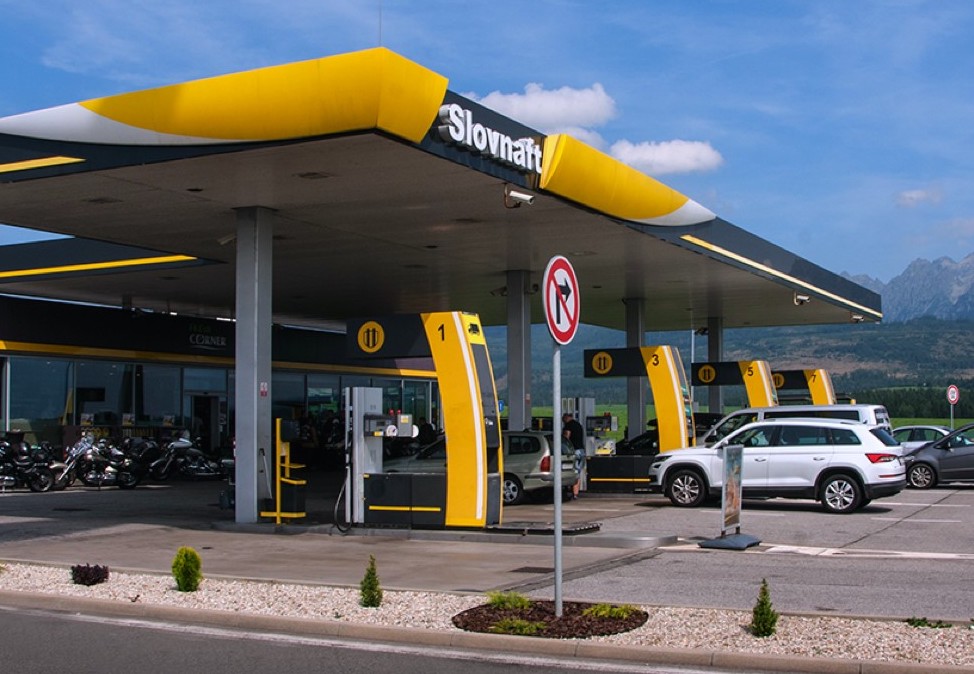In addition to borders, Slovakia shares a long and at times complicated history with its neighbouring countries. Many of these issues were resolved or rendered irrelevant when countries in the region joined the European Union (EU) and NATO. Building regional partnerships, such as the Visegrad 4, to ensure voices from the region were heard became an important endeavour. However, even good neighbours don’t always agree on everything. From the start of the Russian war in Ukraine, Slovakia, alongside Czechia and Poland, has taken a firm stance in supporting Ukraine and opposing Russian aggression. However, the sixth round of sanctions on Russia represents a dual problem for the Slovak government – an economic one as well as reputational.
From an economic standpoint, the fact remains that gas and oil for domestic consumption come from imports via the pipeline from Russia. This is a legacy of the bygone communist era that created an entire ecosystem of jobs, but also almost complete energy dependency on Russia. The vulnerability of this dependency was demonstrated on several occasions in 2006 and 2009. This led to the implementation of a technical improvement that enabled the reverse flow of natural gas in case of interrupted supply, which proved helpful to Ukraine and Slovakia in 2014. The newest round of painstakingly negotiated sanctions on Russia, which aim to cut Russia’s profits from the sale of hydrocarbons to European countries, hit landlocked countries like Slovakia, Czechia, and Hungary the most. According to the most recent announcement from the Slovak Minister for Economy, the government estimates the price increase range for gas for consumer households to be between 34 to 59 percent.
Diversification is one way out for Slovakia. Gas and oil are vital for the Slovak energy sector. A plan to build a pipeline that would enable Slovakia to tap into Polish seaborne LNG supplies is nearing the finish line. Repurposing the only Slovak refinery – Slovnaft, which is part of the Hungarian MOL group – to work with lighter crude oil instead of the heavier Russian type is estimated to cost around €250 million and will take several years to develop. The Slovak government is also asking for guarantees that this type of investment will be supported by funds from the EU. Summer means that while household gas demand for heating is currently low, demand for crude oil remains the same. According to some research, crude oil imports are actually rising.
However, negotiations of the sixth set of sanctions have endangered Slovakia’s reputation as a staunch pro-Ukrainian country. Slovakia’s position as a negotiator, resembling that role of Hungary, saw Slovak leaders asking for the same exemptions which entail oil supplies flowing through pipelines being exempt from the embargo for two years. Unlike Slovakia, Hungary was blocking the entire sixth package until its demands were met. Admittedly, this stubborn position made negotiation a little easier for Bratislava as well.
At the same time, the possible cost of a ‘no-sanctions’ is one without widespread support for Ukraine and pressure on Russia. That scenario is unacceptable to any sane Slovak government–– the prospect of having the Russian army as its neighbor after more than 30 years is an ugly one, even with NATO membership and a battle group on Slovak soil. Having a peaceful Ukrainian state, one that is ideally in the EU, is the most preferred outcome and one that supersedes the need for cheap gas and oil. Paradoxically, this conflict can have an unintended consequence in helping Slovakia reach its emission commitments, meet green quotas, and wean itself off Russian hydrocarbons.
From a distance, it is easy to overlook the economic necessity and opt for an easier albeit lazier polarizing narrative of either pro-Ukrainian or pro-Russian. It should be noted that the Slovak government’s stance on Ukrainian membership in the EU or indeed its supply of weapons and materials to support the war effort has not changed –– indeed, there have been notable transfers of S-300 surface-to-air missile systems, self-propelled artillery, and most recently, helicopters.
So far, sanctions have failed to coerce Russia into stopping the war. They are affecting Russia’s economy and the sixth package of sanctions will be a significant step for the entire EU. That is reason enough to continue with these steps, particularly when every barrel of Russian oil translates into munitions fired at Ukrainians. However, the economic well-being of Ukrainian allies is equally important if their support is to continue. Slovakia’s contribution to Ukraine’s war effort is directly proportional to its ability to heat its homes and power its cars in the coming winter. Therefore, a distinction between it and its southern neighbors should be maintained.





